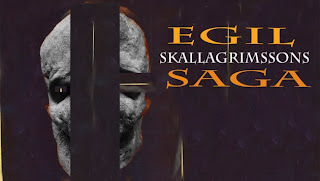The wait is over. It's been barely a week since I finished reading the first volume of Robert Musil's
The Man Without Qualities, but when the book in question is quite possibly the greatest novel of the twentieth century, a week seems long. But my copy of Volume 2 arrived today, and I shall keep you posted as appropriate. The novel's third part, with which Vol. 2 begins, is called "Into the Millennium (The Criminals)," so I suspect I'll come up with a post or two to interest the crime readers of intelligence and good taste who visit Detectives Beyond Borders.
I made good use of the inter-Musils interval, reading, among other things,
one of the greatest Icelandic sagas, Allan Guthrie's funny, violent, touching novella
Kill Clock, and a whole bunch of newer writing influenced by pulp, paperback originals, and 1970s and '80s adventure stories.
Along the way, I revisited a previous comment I'd posted about
wiseass crime writers, talented authors whose good jokes occasionally obtrude on the story rather than helping it along. Such jokes sometimes seem to me the verbal equivalent of an actor mugging for the camera.
Eric Beetner has an interesting relationship to those guys. I read two of his books while waiting for
TMWQ2, the novella
Dig Two Graves and T
he Devil Doesn't Want Me, a novel. Beetner is good at creating entertaining variations on crime themes, such as the prison story and the revenge tale (you might call his takes on the former two, in
Dig Two Graves, oral storytelling), the road epic, and the saga of the aging hit man and the hotshot young gun. (The latter works all the more because the young gun is such a little shit.)
I thought some of Beetner's jokes were a bit jokey in the novella, but hell, it's a novella. When he stretched out to novel length, in
The Devil Doesn't Want Me, I was pleased to see an occasional rueful tone to some of the jokes, which shows me that the guy has chops and that he knows how to create a range of moods.
And the book is filled with good things: amusing byplay involving FBI agents who never get involved in the main story, and trenchant observations about the new Las Vegas and the old, among them. But a time or two, I think Beetner loved a joke too much to let go once he'd told it. Here's an example: The protagonist, Lars, a middle-aged hit man who keeps body and soul together with yoga, contemplates his superiority to the musclebound thug holding a gun on him:
"Guys like the big brute...smashing Lars' own gun hand into the tile floor cared only about the muscles. Lifting, squatting, pumping. For what? A thick neck like that can't turn to check out a great ass anymore."
That's the kind of touching, surprising, humanizing thought that Allan Guthrie is so good at. But Beetner has Lars continue the thought:
"And why did evolution put a swivel on a neck if not for that?"
That may be funny, but what does it add? What does it say that the preceding lines did not? I say Beetner should have cut the line and saved it for another book. To me that coda to the joke was a bit like being elbowed in the ribs and asked "Get it? Ya get it?" And that was all the more frustrating because the first joke was so good.
Your questions:
Am I wrong? And what makes a joke function effectively as part of a story?
© Peter Rozovsky 2013Labels: Allan Guthrie, comedy, Eric Beetner, Humor, Robert Musil, The Man WIthout Qualities




































